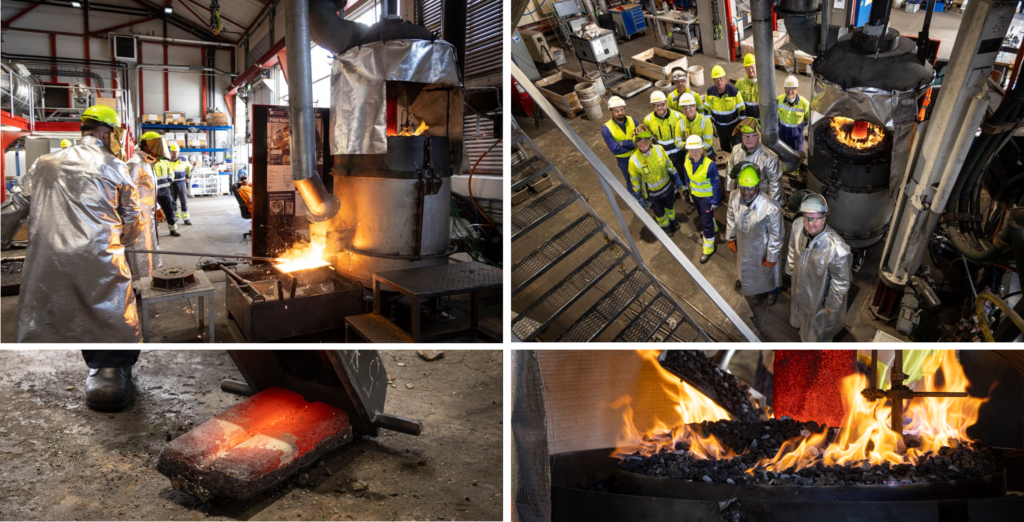In October, as part of WP7 of the BioCoke4FAI project, a series of pilot tests for smelting manganese ferroalloys using bio-coke was completed. The test series took place in a pilot furnace at SINTEF in Trondheim. Bio-coke acts as a reducing agent in the carbothermal process of manganese ore reduction. Manganese is one of the alloying additives that improve the key mechanical properties of steel and has a positive effect on tensile strength, workability, hardness and abrasion resistance. It also reacts with sulfur, preventing the steel surface from cracking. The test series consisted of two campaigns during which two types of bio-coke with a renewable component content of over 20%, produced in the technological conditions of the gravity- and stamping system. Twelve individual tappings were made for each bio-coke. The tests proved the suitability of the bio-coke produced under the project for the production of manganese ferroalloys. The bio-coke used in the tests was produced in a pilot coking oven as part of the implementation of WP6 led by Koksownia Częstochowa Nowa. The idea of producing bio-coke is based on replacing part of the elemental carbon of fossil origin, the source of which is coking coal, with elemental carbon from renewable sources – biomass. Biomass, due to the assimilation of carbon dioxide during the photosynthesis process, is considered a zero-emission raw material, therefore the introduction of biomass origin carbon should contribute to the reduction of CO2 emissions from the processes of using coke (bio-coke). The practical implementation of the above-mentioned idea involves the production of bio-coke in functioning coke oven batteries using a coking blend with appropriately prepared biomass raw materials, raw or thermally processed biomass (torrefied, charcoal, etc.).

